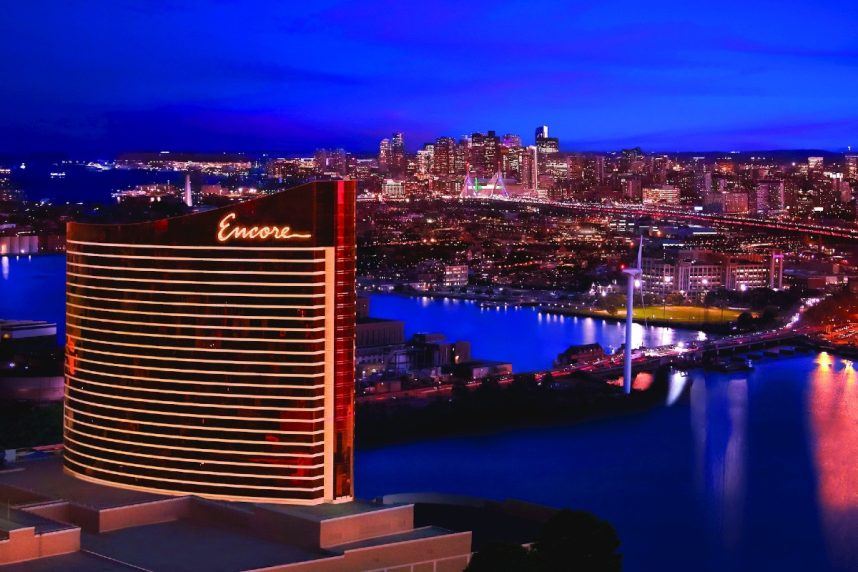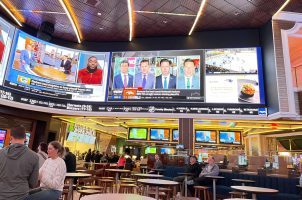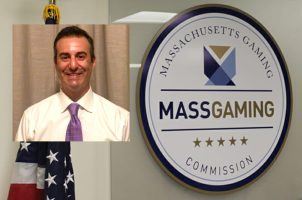Massachusetts Casino Study Concludes Gaming Has Delivered Net Benefit
Posted on: October 25, 2024, 03:32h.
Last updated on: October 25, 2024, 03:32h.
The three commercial casinos in Massachusetts have overall benefitted the state, a new study finds.

Two years after lawmakers authorized up to three full-scale casinos with slot machines and table games and a slots-only property, Massachusetts initiated a study commission to regularly review the effect casino gambling is having on the state. Dubbed the Social and Economic Impacts of Gambling in Massachusetts, or SEIGMA, the University of Massachusetts Amherst School of Public Health was tasked with analyzing the casinos’ economic and social impacts.
In its 194-page October report titled, “Social and Economic Impacts of Casino Introduction in Massachusetts,” SEIGMA researchers found that the gambling properties have had a net positive influence on life in the commonwealth.
The introduction of casinos to Massachusetts has significantly increased overall economic activity and employment in Massachusetts, particularly in regions proximate to the casinos, and particularly for the construction and operation of Encore Boston Harbor,” the study conclusion read. “Furthermore, casino taxes on gross gaming revenue provides hundreds of millions of dollars to the state government, which is then used to benefit towns and cities.”
Since Plainridge Park Casino opened in 2015, MGM Springfield in 2018, and Encore Boston Harbor in 2019, SEIGMA has completed 55 interim reports and academic publications on the casinos’ impacts. The report released this week is a summative publication highlighting the many benefits of three casinos.
The Good
The SEIGMA team, which additionally includes academics at the University of Lethbridge in Canada’s Alberta, determined that the primary benefit of the 2011 casino bill has been a significant increase in overall economic activity and employment in the three regions with casinos. The report cited the billions of dollars invested by the out-of-state casino companies and the billions of dollars in ongoing gaming and non-gaming revenue generated by the properties as most responsible for the economic activity and tax revenue surge.
Researchers said the ongoing revenue and tax stream comes mostly from Massachusetts residents “who were previously spending this money out-of-state.” The hundreds of millions of dollars in tax revenue paid by the three casinos has been “used to benefit towns and cities as well as the citizenry of Massachusetts.”
The study found no significant change in statewide levels of crime or in the host and surrounding cities of the casinos. Instances of property crime decreased in all host and surrounding cities since their respective casinos opened and instances of violent crime decreased in and around Encore in Everett and MGM in Springfield.
Everett and Plainville experienced population increases since Wynn and Plainridge opened. Springfield’s population remained flat.
As for residential real estate, Encore is thought to have yielded a “hot” property market where home prices are increasing. MGM entering Springfield led to an increase in multi-home sales, and gentrification of the once downtrodden city continues. Plainridge Park is not thought to have had a material impact on nearby residential real estate.
And Some Bad
The SEIGMA findings also pinpointed the negative consequences of bringing a bit of Las Vegas to Massachusetts. The researchers found that much of the additional economic activity has been derived from the expenditures of at-risk and problem gamblers.
While the actual population prevalence of problem and at-risk gambling did not increase, the revenue drawn from this vulnerable segment of the population likely has,” the report said.
The findings suggest that rates of problem gambling didn’t increase because those prone to gambling addiction already had a “high level of casino gambling participation” in neighboring Rhode Island and Connecticut.
There has also been some cannibalization of other industries, specifically the food and beverage category and hospitality segments, in and around where MGM and Plainridge operate. Those industries have also fought a tighter labor market because of the casino openings, as about 75% of the casino workforce left other full-time employment.
Related News Articles
WynnBet Receives First Mobile Sportsbook License in Massachusetts
Massachusetts Sports Betting House Rules Approved, Bet365 Drops Raynham Park
Massachusetts Sports Betting Begins at State’s Three Commercial Casinos
Most Popular
FTC: Casino Resort Fees Must Be Included in Upfront Hotel Rates
Genovese Capo Sentenced for Illegal Gambling on Long Island
NBA Referees Expose Sports Betting Abuse Following Steve Kerr Meltdown
UPDATE: Former Resorts World & MGM Grand Prez Loses Gaming License
Most Commented
-
UPDATE: Whiskey Pete’s Casino Near Las Vegas Closes
— December 20, 2024 — 30 Comments -
Caesars Virginia in Danville Now Accepting Hotel Room Reservations
— November 27, 2024 — 9 Comments -
UPDATE: Former Resorts World & MGM Grand Prez Loses Gaming License
— December 19, 2024 — 8 Comments -
FTC: Casino Resort Fees Must Be Included in Upfront Hotel Rates
— December 17, 2024 — 7 Comments
















No comments yet